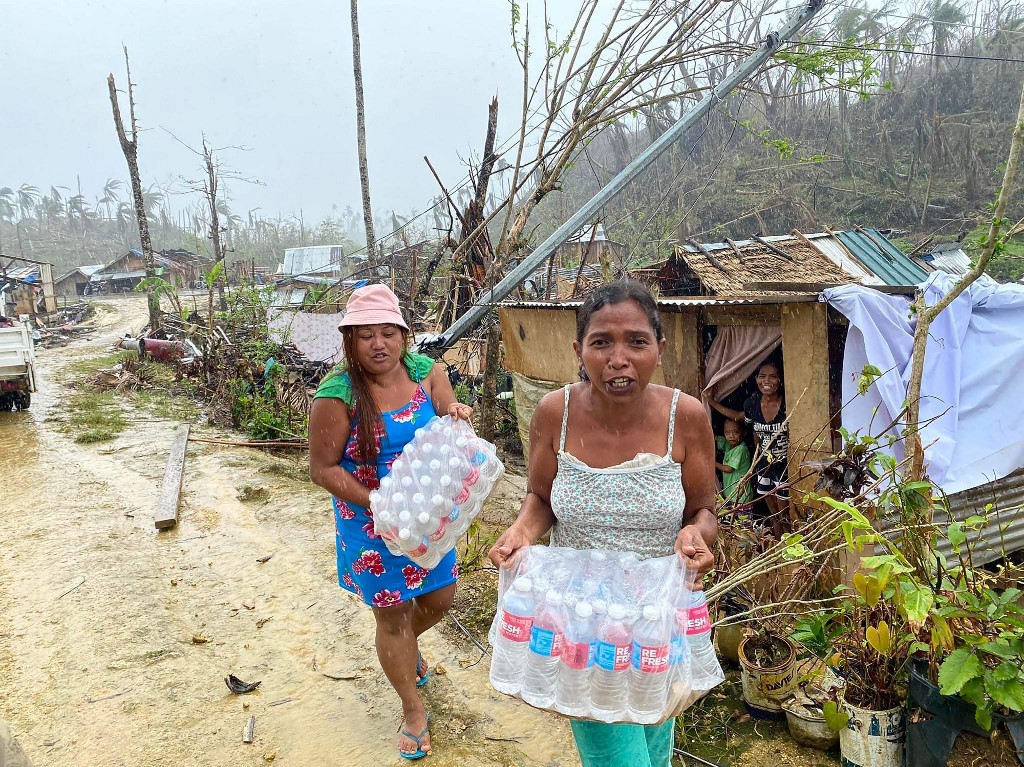
In this photo taken on January 5, 2022, residents carry bottled water given as aid from a non-governmental organisation in Burgos town, Siargao island, weeks after super Typhoon Rai devastated the island. (Photo by Roel CATOTO / AFP)
Manila, Philippines — Nine people have died and hundreds have fallen ill with diarrhea in areas of the Philippines wrecked by a super typhoon last month, with aid officials warning of a health crisis as millions struggle to secure clean water and food.
Three weeks after Typhoon Odette (international name: Rai) struck southern and central islands, destroying thousands of homes and killing more than 400 people, relief work continues to deliver supplies to stranded residents left homeless by the storm.
Nine people have died from dehydration caused by diarrhea in the impoverished Dinagat Islands and the neighboring resort island of Siargao, known for its surf spots, the Philippine health department’s regional office said.
A total of 895 cases were recorded there since the typhoon struck, mostly among those left homeless, as the government and aid agencies rush to build emergency water treatment facilities, department spokesman Ernesto Pareja told AFP.
“It’s hard to say it’s under control. The water supply remains irregular. Their food needs have not been addressed,” Pareja said.
The International Federation of Red Cross and Red Crescent Societies (IFRC) warned of a “mounting health crisis” in typhoon-hit areas as it scaled up its disaster response.
“It is extremely concerning that people have been getting very sick and even dying in areas smashed by this typhoon,” IFRC Head of Philippine Delegation Alberto Bocanegra said in a statement Thursday.
The typhoon left “millions without access to clean drinking water, hospitals and health facilities”, Bocanegra added.
A total of 402 people died from the typhoon, according to the Philippine civil defense office’s latest tally, with more than 1,200 injured and 78 still missing and at least 370,000 still in evacuation centers.
The United Nations World Food Program (WFP) said the government’s preparations for the storm and early response had been “laudable” but warned that more support was needed.
“Unless we act now and provide badly needed food assistance to affected families, we risk seeing a rapid rise in preventable malnutrition,” said WFP Country Director and Representative Brenda Barton.
Pareja urged donors and aid agencies to continue their work.
“To all our partners, we hope they will not stop the flow of aid. The situation remains unstable,” Pareja said.
Survivors have likened the storm to Super Typhoon Yolanda (international name: Haiyan), which left 7,300 people dead or missing across the central Philippines in 2013 and remains the country’s deadliest on record.
Local health officials are also monitoring respiratory infections after at least two cases turned out to be COVID-19.